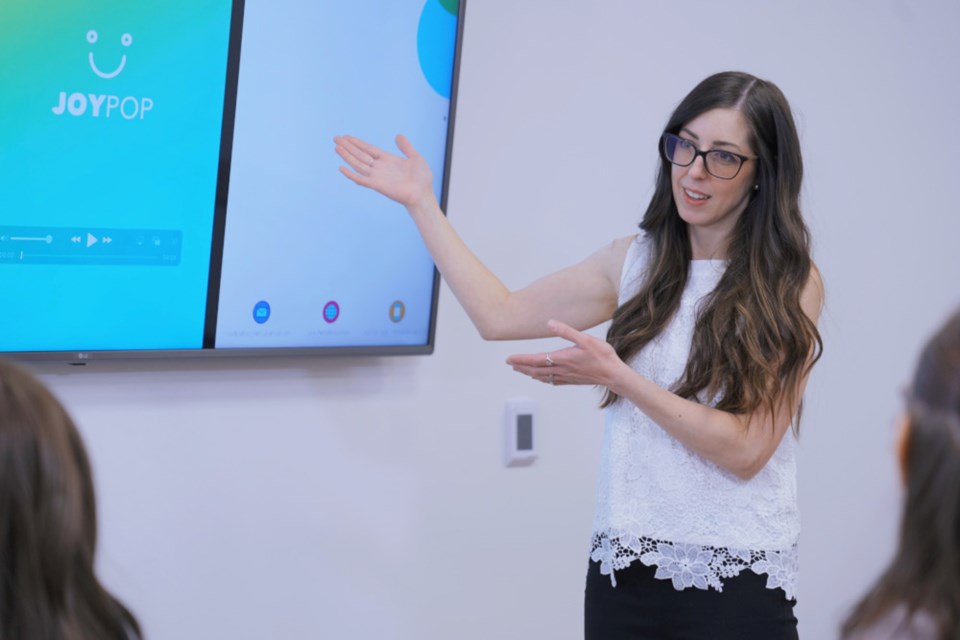Dr. Aislin Mushquash, a clinical psychologist at Dilico Anishinabek Family Care and associate professor in the Department of Psychology at Lakehead University, has received a grant to study an early mental-health intervention app for adolescents.
The SickKids/Canadian Institutes of Health Research New Investigator Research Grant is $299,938 for three years and will fund
a unique study aimed at improving mental health for 12-to-18-year-old youth in Northwestern Ontario.
Mushquash and her team will conduct a randomized controlled trial to investigate if the JoyPop app is an effective intervention for adolescents experiencing mild to moderate mental health symptoms who are on the wait list for outpatient services.The study will be in partnership with Dilico Anishinabek Family Care and Children’s Centre Thunder Bay, two of the busiest organizations providing mental health services to youth in Northwestern Ontario.
“As psychologists, we talk about the detriments of excessive screen time,” Mushquash said. “But we have an opportunity to turn the phones that youth already have in their pockets into a positive resource.”
Mushquash’s earlier studies established that the JoyPop app can help older youth develop better emotion regulation strategies and reduce symptoms of distress, that users see value in the app, and that youth and service providers are open to integrating the app into usual care. She said that the primary goal of the next trial is to find out if younger youth seeking mental health services can also benefit.
The study will also investigate differences across the gender spectrum and between Indigenous and non-Indigenous youth, whether this early intervention reduces the level and amount of services needed downstream, and whether the app increases the willingness for youth to engage with services more fully once they are able to access them.
“That’s a new piece we’ll be measuring – the motivation and the readiness for counselling after using the app,” she said.
The need in Northwestern Ontario is greater than most places in Ontario and Canada.Wait times are longer and there are fewer mental health clinicians to serve youth in need. If successful, this app could help address those factors to provide support faster.
“Of course, an app will never replace coming in and talking to a counsellor, social worker, or psychologist. But we hope it can be something that allows youth to start building their capacity and skill set in the short term.”
The JoyPop app is a made-in-Canada solution developed in collaboration with researchers at McMaster University and Clearbridge Mobile. Currently, the app is
available for the iPhone and iPad.
Mushquash’s team purchased used iPhones that they will give to youth who do not have one for the duration of their research, thanks to a Thunder Bay Community Foundation grant received during their pilot research.New Investigator Research Grants enable early-career researchers to make a meaningful
contribution to the fight for children’s health. SickKids Foundation and the Canadian Institutes of Health Research (CIHR), Institute of Human Development, Child and Youth Health jointly sponsor these grants.
This program provides child health researchers who are early in their careers with support so they can compete for research grants with more senior investigators.
“Congratulations to Dr. Mushquash for receiving this important grant and thanks to SickKIds and CIHR for the funding,” said Dr. Andrew P. Dean, Lakehead’s vice-president, research and innovation.
“This research will allow Dr. Mushquash to build upon her previous evaluations of JoyPop and to extend it to youth. It is absolutely clear that finding and evaluating the effectiveness of new methods to help our youth with mental health symptoms has never been more important.
“This is particularly important in Northwestern Ontario where capacity for mental health counselling is less than in other areas of the province,” Dean said.
